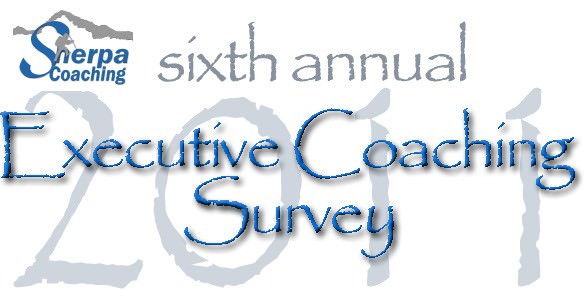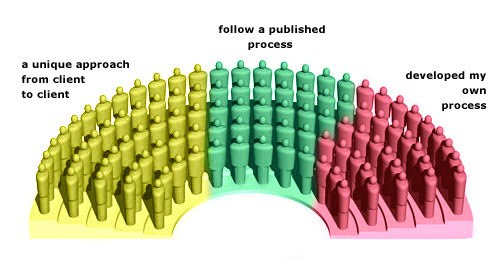
Rising Support for Standards of Practice
Over the years, support has remained steady for “a recognized and standard for coaching, similar to the accounting financial planning professions”. Forty percent of our respondents say that’s ‘very important’, while 20% say it’s ‘absolutely essential’. Support for standards runs highest among HR professionals, coaching clients and purchasing decision-makers.
 For the first time last year, we asked whether coaches follow a published process. Seven in ten do not. Over 40% reported that they ‘develop a unique approach from client to client’. That’s true again this year. However, there was a major shift in our results. The number of coaches who follow a published process jumped from 21% to 28%. The number of coaches who developed their own process for coaching dropped meaningfully, from 36% to 31%.
For the first time last year, we asked whether coaches follow a published process. Seven in ten do not. Over 40% reported that they ‘develop a unique approach from client to client’. That’s true again this year. However, there was a major shift in our results. The number of coaches who follow a published process jumped from 21% to 28%. The number of coaches who developed their own process for coaching dropped meaningfully, from 36% to 31%.
What’s going on? Even veteran coaches, practitioners who seem least likely to change, are actually adopting standard processes and dropping self-styled approaches. This trend toward widespread use of published processes will probably continue. Coaches newer to the business use a published process far more often. If this trend holds, we believe they will fill out the ranks of veteran coaches.
What approach guides coaching practices? 2011 Sherpa survey responses:

There are differences between male and female coaches. 26% of men and 33% of women follow a specific published process for coaching.
What processes are they following? Quite a few, actually. Again this year, the Sherpa process and the Coactive process are the most widely reported, each at 20% or more of the market. Several other processes hovered between three and five percent. 35 other coaching processes also received mention, most often by just one respondent.
Download Article














